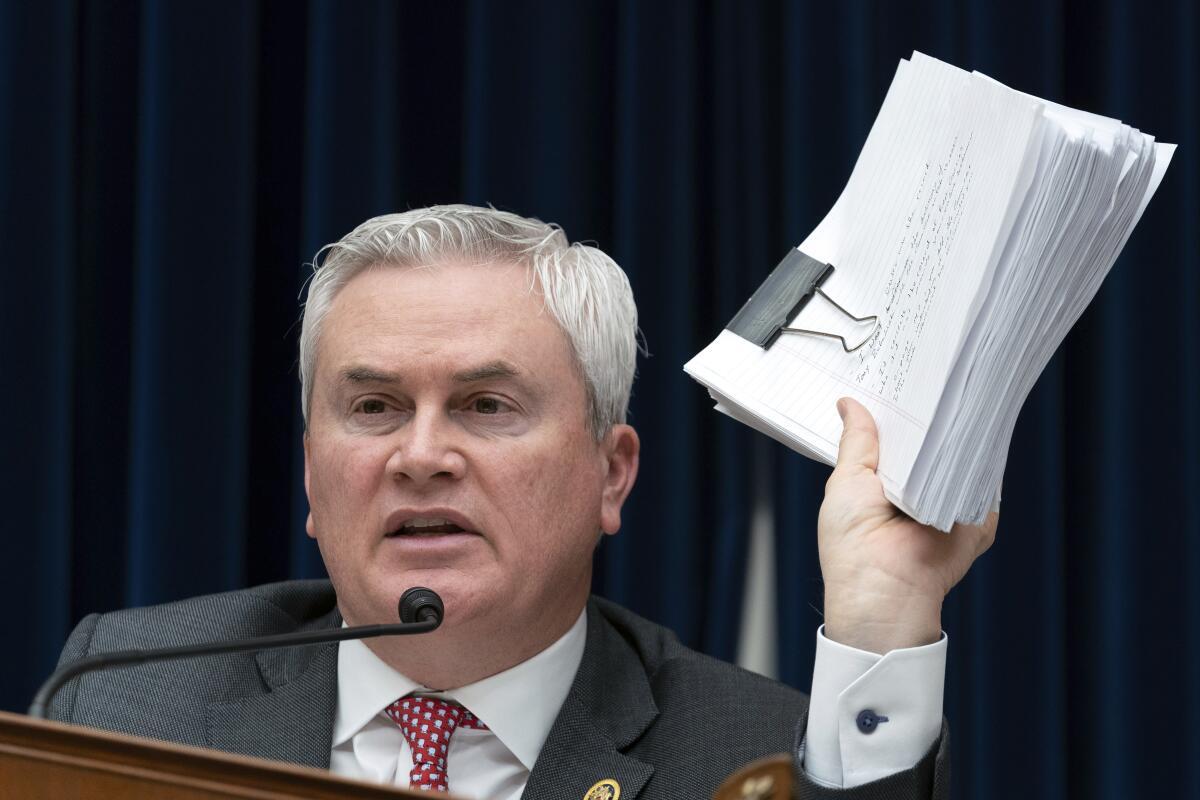Rep. James Comer, the chairman of the House Committee on Oversight and Accountability, has intensified his critique of the White House concerning the ongoing impeachment inquiry into President Joe Biden.
Allegations include influence peddling and other criminal activities involving Biden and his family members. In a pointed letter to Richard Sauber, special counsel to the President, which was acquired by Newsmax, Comer reiterated demands for the Biden administration to disclose various records and allow testimony from key personnel.

Comer’s requests are expansive and detailed, encompassing Air Force 2 flight manifests, emails involving Biden using an alias during his vice presidency to communicate with his son Hunter’s business partners, and drafts of a speech Biden delivered in Ukraine in 2015.
These documents, Comer argues, are critical for determining whether President Biden engaged in any misconduct. Expressing dissatisfaction with the responses from the White House, which consistently state “The President has done nothing wrong,” Comer challenges this assertion.
He points to statements from business associates of the Biden family who suggest otherwise. He questions the administration’s efforts to block the release of specific documents by the National Archives and to prevent former and current White House staff from testifying.
These staff members include Dana Remus, former White House counsel, and several aides close to both Biden and the first lady.
Comer has extended his inquiries to include communications involving Biden and several of Hunter Biden’s foreign business associates who have connections with geopolitical players like the Chinese Communist Party and powerful Russian figures.

The congressman has set a firm deadline of April 24 for the White House to comply with these demands. He warns that the extended withholding of requested information under the Presidential Records Act is no longer acceptable, emphasizing the urgent need for transparency in the impeachment inquiry process.
This confrontation underscores the ongoing tension between the Republican-led House committee and the Democratic administration, reflecting the broader partisan divides in Washington. As the deadline approaches, the political stakes continue to escalate, potentially influencing both legislative actions and public opinion.


